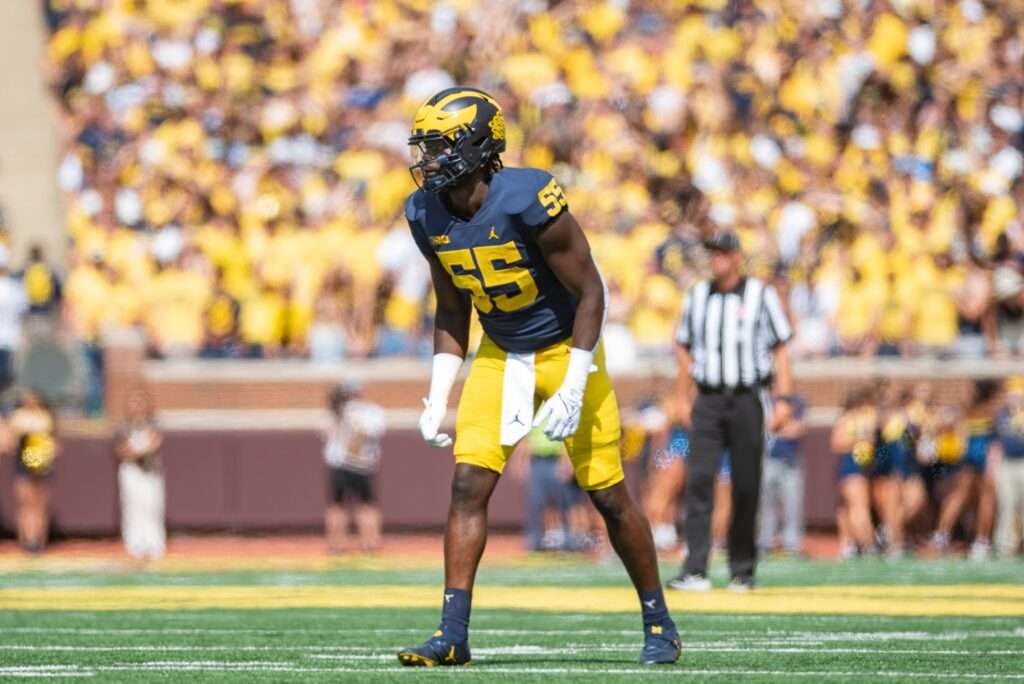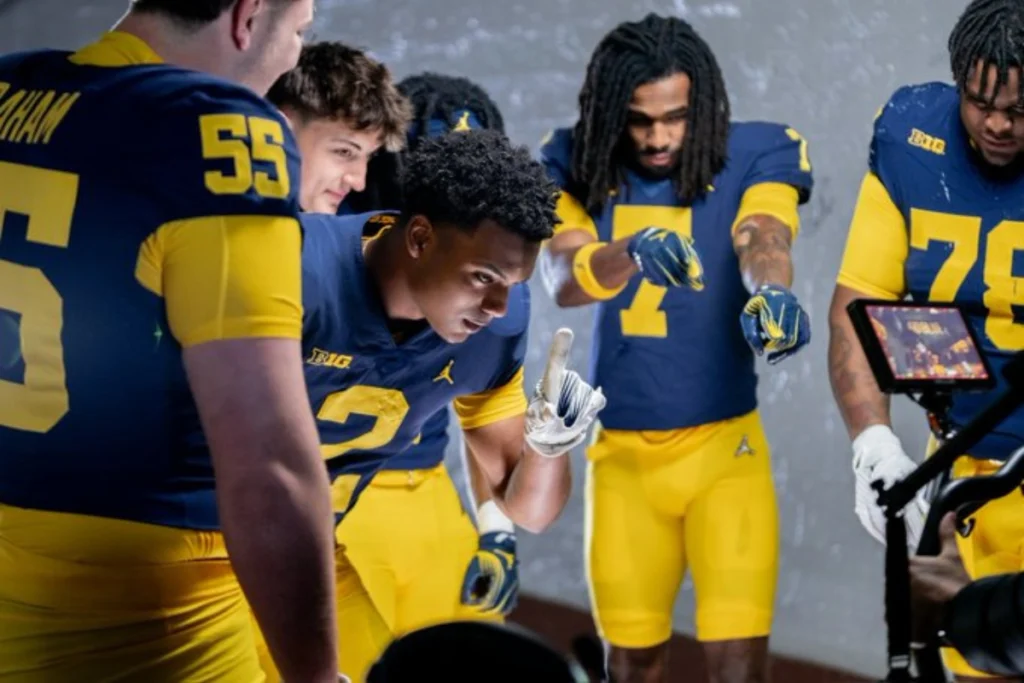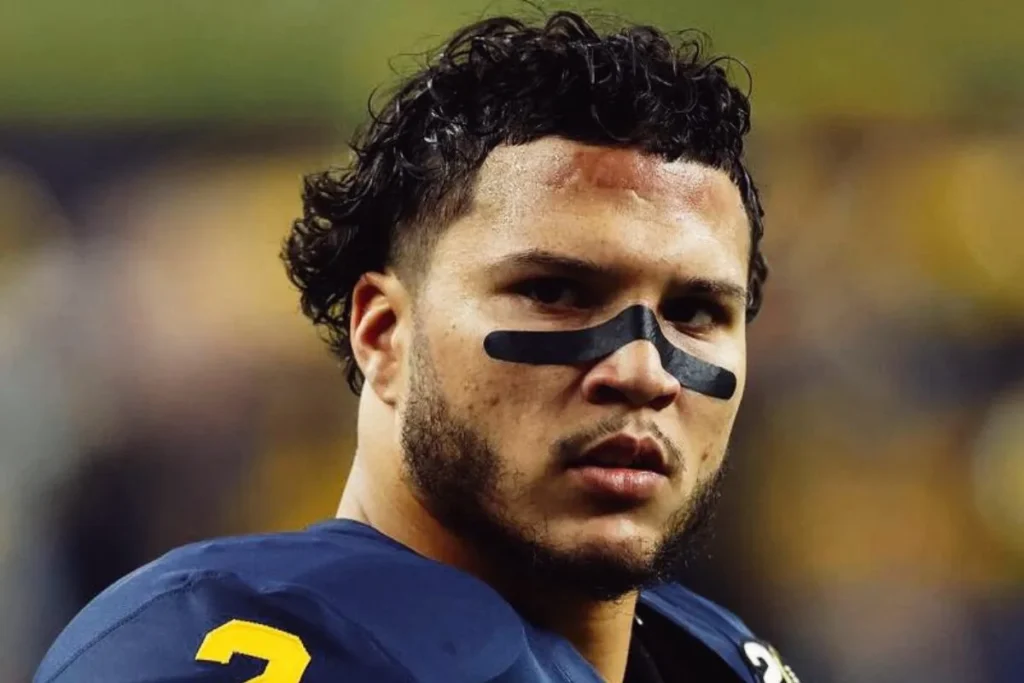The Real Reason International Players Can't Profit From NIL

Last week I was participating in my usual ritual of endless scrolling through Michigan Twitter when I came across an outrageous post. Star Michigan Wovlerines defensive lineman David Ojabo had tweeted “Unfortunately, I cannot profit off of my NIL because I am an international student. ” He was referring to a site that was selling T-shirts of Ojabo along side memorabilia of his teammates. The only difference was his teammates were making money from the sales when he was not. The reason? Ojabo, born in Nigeria, is currently a citizen of the United Kingdom. I thought to myself: This is clearly one rule that the NCAA must change immediately.
Unfortunately, I cannot profit off of my NIL because I am an international student. Even though I will not be compensated, I truly love & appreciate the Michigan fanbase so I am excited to share that my jersey & jersey tees are available at https://t.co/2ZSbbWz6nc pic.twitter.com/EWtDkck9Cc
— KingJabo👑 (@DavidOjabo) December 21, 2021
…or so I thought. It turns out that the NCAA’s Name, Image, and Likeness(NIL) rules are not to blame. The regulation that is actually responsible for David Ojabo’s inability to profit from his popularity as a star Wolverine is an immigration visa law.
According to the NCAA, 12% of Division 1 college athletes are international. They attend school with their teammates, participate in grueling workouts with their teammates, and risk injury alongside their teammates. But they can’t make money like their teammates. International student athletes are able to compete in the U.S. under the F1 student visa regulations. The F1 student visa allows students to temporarily live in the U.S. while studying at a college or university. F1 visa policies allow students to work on campus, but have very specific restrictions for off campus work. The NCAA’s Name, Image, and Likeness(NIL) rules specify that players cannot be paid directly for their performance, but can profit off of their popularity outside of official team activities. This leaves players like Ojabo in an undefined gray area.
On November 27th, 2021, Michigan faced their arch rival, Ohio State, with a chance to snap an eight game losing streak and punch their ticket to to their first ever Big 10 Championship game. With just over a minute remaining in the game, Michigan held on to a two score lead and needed one more big play to seal the deal. Ohio State quarterback CJ Stroud dropped back to pass while David Ojabo curled around the edge. Just as Ojabo sacked Stroud, play-by-play announcer Gus Johson called out “O-Ja-Bo!” in what would soon become one of the most iconic calls in Michigan Football history. The sack put Ohio State in a nearly unconvertable 4th and long, and lead to an incomplete pass that would end the game. Michigan would go on to win the Big 10 and make their first ever appearance in the College Football Playoff.
David Ojabo permanently cemented himself into Michigan Football folklore. Football fans admire him, social media accounts share stories about him, and retailers sell merchandise with him name, image, and likeness. But the fact remains that Ojabo cannot pocket a penny of the proceeds that he helped create. Unofficial reports indicate that governing institutions are working to close this regulatory loophole, but they can’t work fast enough. Player like David Ojabo deserve to benefit from their hard work to that same degree as their fellow student athletes.


